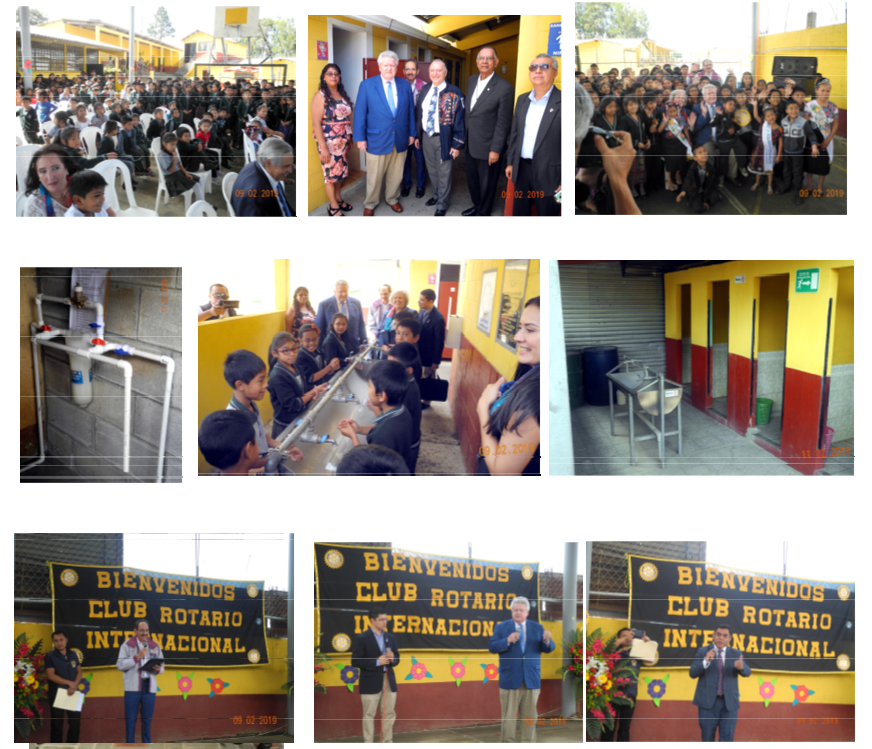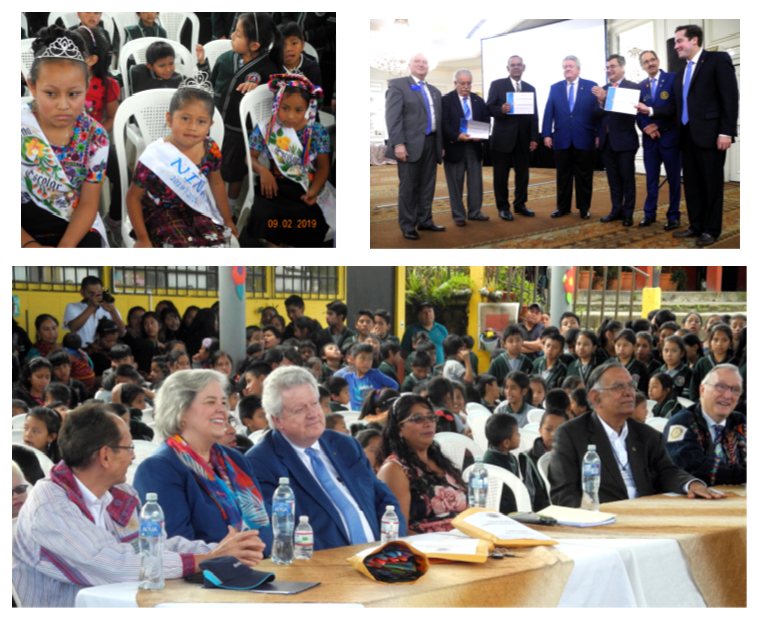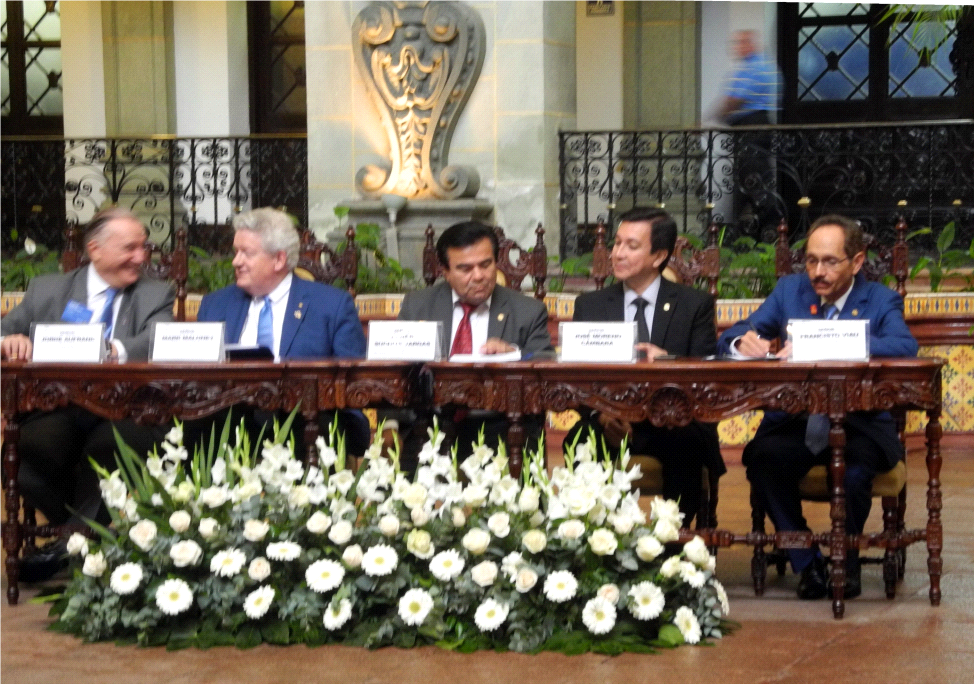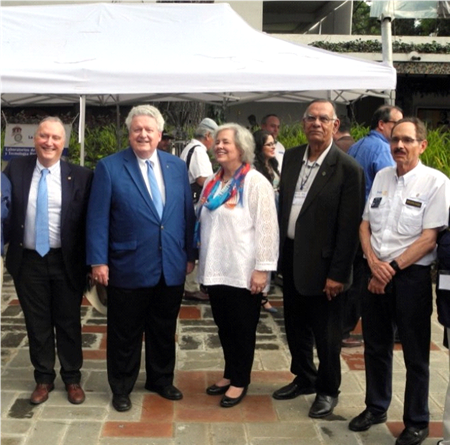WASH in Schools (WinS) is a Rotary Foundation program. The key feature of WinS is to leverage off from water and sanitation related efforts and connect them with health, hygiene and education. Addressing health and hygiene training while developing water and sanitation projects may have a profound positive impact on the overall health of a community while benefiting education for boys and girls.
In February 2018, The Rotary Foundation (TRF) awarded $560,000 competitive challenge grant (PG17 90001) to our team of Club Rotario Guatemala Sur, Rotary Club of Antigua, Rotary District 4250 and Barrington Breakfast Rotary Club, Rotary District 6440 addressing Water, Sanitation and Hygiene, (WASH) in Schools (WinS). The program is being implemented under the direction of PRID and TRF Trustee Jorge Aufranc and Narayan Murarka.
A total of about 16,000 children between the ages of 3 to 18 from 48 schools in Sacatepéquez department of Guatemala, will have 24/7 access to clean filtered water and sanitation facilities with emphasis on education and training for health, hygiene and menstrual health management.
Background: Within developing countries, unsafe water, poor sanitation and lack of hygiene together create a high-risk situation for school age children leading to diseases and contribute to deaths from malnutrition. Unsafe water is not only linked with health, it also affects education for children. When they get sick from diarrhea and other water borne diseases, school attendance is severely affected. The impact/consequences are poor education and challenges for better future.
The adolescent girls in schools have unique added challenges due to lack of menstrual hygiene knowledge, resources and facilities. Providing Menstrual Hygiene Management training in schools encourages adolescent girls to continue their education without school dropout, improving their long-term development and self-confidence.
This is the “status quo” in rural parts of Guatemala with significant indigenous population. The Rotary Foundation, through its initiative “Water, Sanitation & Hygiene (WASH) in Schools (WinS),” is intervening to improve education quality and access – particularly for girls. UNICEF is working in more than 95 countries with the WinS program. WinS became a priority for The Rotary Foundation recently and is being implemented as a pilot project in Guatemala, Honduras, Kenya and India.
The program is implemented as follows:
WASH Facilities
- Access to clean safe water is provided with Sawyer SP 202 water filter
- Handwashing and drink stations are being built with multiple faucets.
- Gender segregated toilets are built.
- Restroom with toilet and sink for girls to meet their needs during menstrual cycle to guarantee washing, changing and menstrual waste disposal with privacy.
Education & Training
- Effective health and hygiene training program to encourage formation of cleaning habits and promote cultural behavioral change.
- Menstrual hygiene management program focused on the biology of menstruation cycle and safe practices. The goal is to prevent girls from dropping out of school
- Incorporate lessons in school curriculum
RI President Mark Maloney with his wife Gay visited the Bilingue School in Sumpango Municipality of the Department (state) of Sacatepéquez on September 2, 2019 to celebrate the completion of project work at this school. Lic. Efrain Paredes, Mayor of Sumpango Municipality was also present.
Images from this event are shown below.


WASH in Schools (WinS) commitment letter signed
An Addendum to the original letter of “INTER-INSTITUTIONAL COMMITMENT” for WinS was signed at the National Palace in Guatemala City between the Guatemala Ministries of Education and Health and Rotary District 4250.
 As part of the commitment, the Ministry of Education will review, endorse and register the list of schools in which the WASH Program will be implemented, and grant through the corresponding Directorates, the respective permits and/or authorizations, for the entry of people and materials to the schools of the program and will carry out any necessary management to execute the ideal infrastructure according to the needs of the schools. It will also issue the instructions for the school authorities to provide the support as necessary.
As part of the commitment, the Ministry of Education will review, endorse and register the list of schools in which the WASH Program will be implemented, and grant through the corresponding Directorates, the respective permits and/or authorizations, for the entry of people and materials to the schools of the program and will carry out any necessary management to execute the ideal infrastructure according to the needs of the schools. It will also issue the instructions for the school authorities to provide the support as necessary.